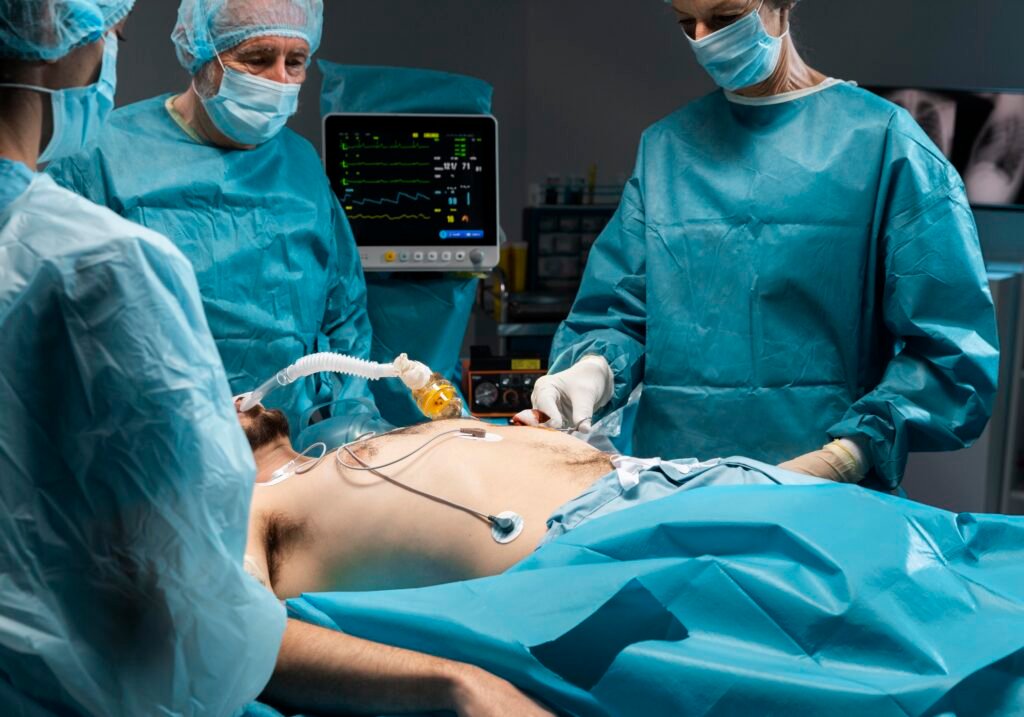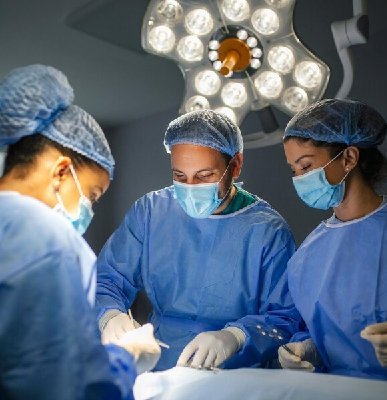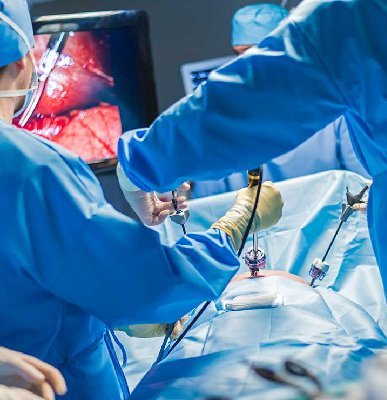
General Surgery encompasses a broad range of surgical procedures aimed at addressing conditions affecting the abdomen, breast, thyroid, and other soft tissues. This specialty focuses on the comprehensive management of trauma, cancers, and infections, often requiring open surgical techniques where larger incisions are made for direct access to the affected area.
Laparoscopic Surgery, also known as minimally invasive surgery, signifies a technological advancement in surgical techniques. It involves making small incisions to insert a laparoscope (a thin tube with a camera) and specialized instruments, allowing surgeons to perform complex procedures with more precision, reduced pain, and shorter recovery times compared to traditional open surgery. This approach is widely used for gallbladder removal, hernia repair, and in gynecological and gastrointestinal surgeries, showcasing its versatility and benefits in improving patient outcomes.
Vihaan Hospital & Research Centre excels in the field of General Surgery & Laparoscopic Surgery, offering a comprehensive range of surgical interventions tailored to meet the diverse needs of its patients. Its state-of-the-art facilities are equipped with advanced technology, enabling a team of highly skilled surgeons to perform both traditional open surgeries and cutting-edge minimally invasive laparoscopic procedures. The hospital is dedicated to providing personalized, high-quality care, focusing on patient safety, rapid recovery, and minimal discomfort. From routine appendectomies to complex hernia repairs, Vihaan Hospital stands out for its commitment to excellence in surgical healthcare, ensuring optimal outcomes and enhancing the patient experience through innovation and expertise.
General & Laparoscopic Surgery F&Q's
General surgery encompasses a wide range of surgical procedures typically involving open operations where larger incisions are made. Laparoscopic surgery, a subset of general surgery, involves performing surgeries through small incisions using a camera and specialized instruments, offering a minimally invasive alternative with benefits such as reduced pain and faster recovery.
Common laparoscopic procedures include gallbladder removal (cholecystectomy), hernia repair, appendectomy (removal of the appendix), and certain procedures on the intestines and liver. Gynecological and urological surgeries are also frequently performed laparoscopically.
Surgeons may opt for laparoscopic surgery due to its benefits for the patient, including smaller incisions, reduced pain and scarring, shorter hospital stays, and faster return to daily activities. It also allows surgeons to have a magnified view of the operating area, potentially increasing precision.
Like all surgical procedures, laparoscopic surgery carries risks, such as infection, bleeding, and complications related to anesthesia. There is also a small risk of injury to organs near the surgical site. However, the overall risk is considered lower than traditional open surgery.
Preparation for laparoscopic surgery may include fasting, undergoing preoperative tests, and stopping certain medications. Patients should also arrange for someone to drive them home post-surgery and help during the initial recovery period at home.
The recovery process varies depending on the specific procedure and the individual’s health but generally involves less pain and a quicker return to normal activities compared to open surgery. Patients are advised to follow post-operative instructions closely, including care for the incision sites, pain management, and gradually resuming physical activities.











